Just like all other insects, ants play an important role in our ecosystem. They are an integral part of the outdoor world, and of course, that is where we’d like them to stay. It becomes problematic when they invade your home. Need to learn how to get rid of ants? We’ve got some natural ways to deter the tiny creatures: no toxic chemicals or fancy exterminator needed.
How to Get Rid of Ants in Your Kitchen
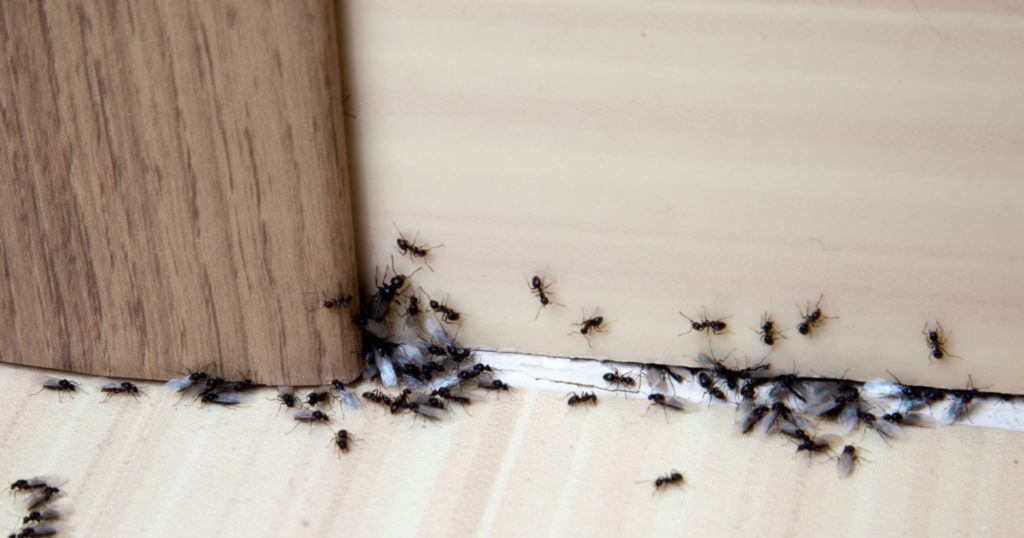
There are many different ways to naturally remove the ants from your home and keep it that way. The one that works best for you will depend on how bad your problem is. Perhaps you are looking for preventative measures, maybe ants are coming into your home but their colony is outside, or maybe the entire colony is attempting to take over your house. Whatever the case, there is a solution in this list for you.
Read: How To Use Baking Soda To Kill Pests
Ready to learn how to get rid of ants?
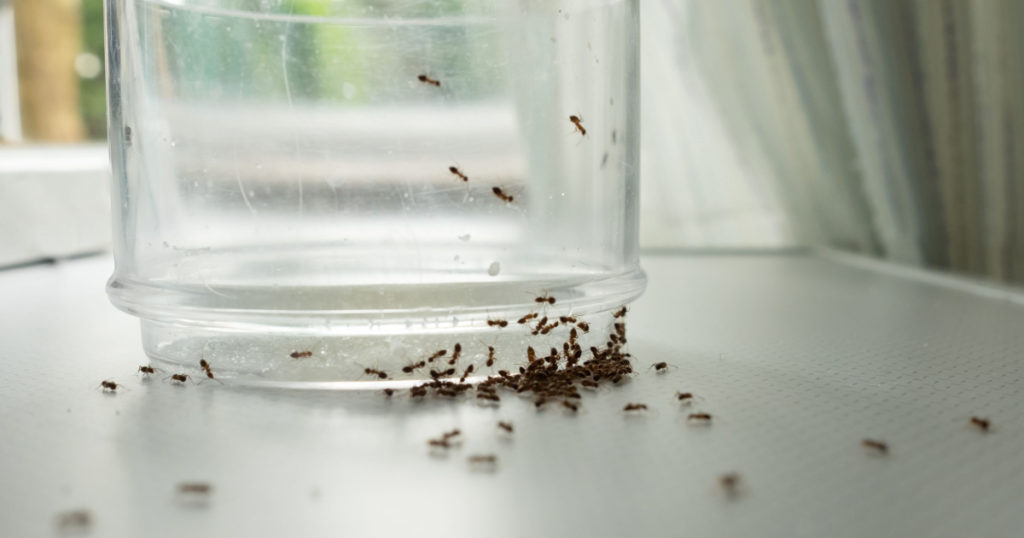
Ants come into your home looking for food, which is why they most often invade the kitchen. To start your ant-eliminating process, first, make sure you keep your kitchen as clean as possible. This means wiping surfaces and cleaning floors to make sure there aren’t any crumbs, droplets, and other tasty ant-sized morsels to make them keep coming back. After that, check out some of these natural methods to get them out and keep your home ant-free.
1. Cinnamon
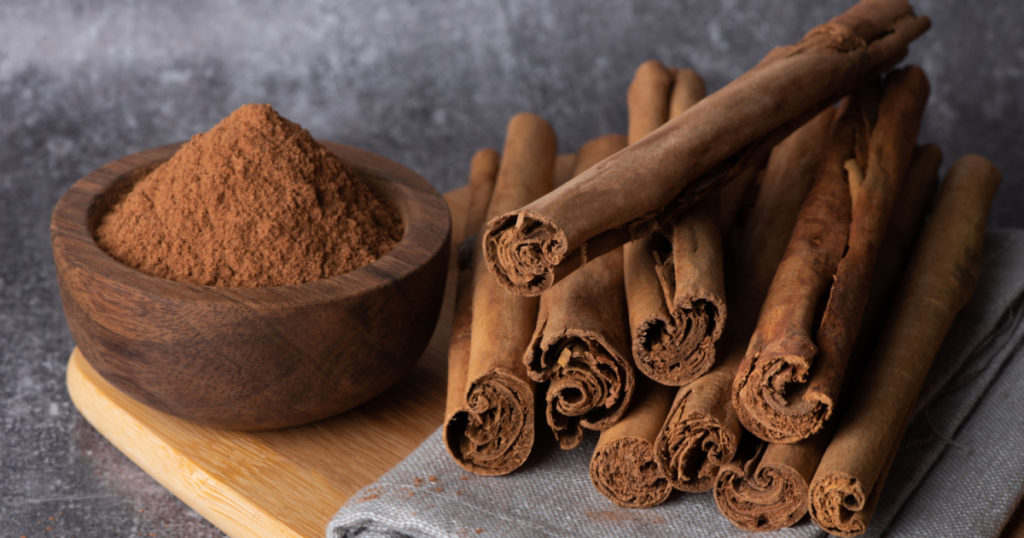
Ants are highly sensitive to scents, even more so than other insects, and evidently, they don’t like the smell of cinnamon. There are a few ways you can use cinnamon to deter them: Sprinkle ground cinnamon around their entry points into your home. Make a cinnamon essential oil spray (½ tsp cinnamon essential oil for every 1 cup of water) and spray it around all areas where the ants come into your home, where they tend to congregate, and also where they live. Put whole cinnamon sticks outside around doors, windows, and other entryways.
2. Borax, Water, and Sugar
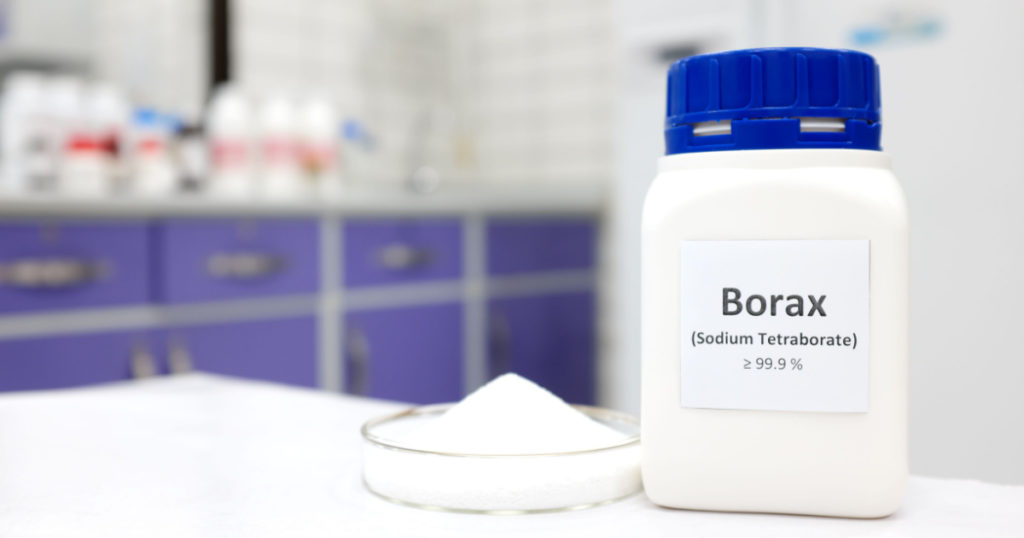
While ants love sugar, borax is toxic to them. The sugar attracts the worker ants who will take the sugar back to their colony and give it to the queen. The borax then effectively poisons the queen. When the queen goes down, the colony goes down with her. Here’s what to do: Put ½ cup of white sugar and 1.5 tsp of borax into a jar. Next, pour in 2 cups of boiling water and stir until the mixture has dissolved. Lastly, soak cotton balls in the mixture and place them in areas where the ants enter and congregate in your home.
You can also leave containers with the mixture out (do not reuse the containers), or add the boric acid to maple syrup or liquid honey and spread it on a disposable, flat surface such as a strip of cardboard.
This method is highly effective but it can take up to 3 weeks before the queen is dead, so you may have to re-do them a few times.
3. Lemon

Again, there are more ways than one to use lemon to keep the ants at bay. Lemon Juice: spray lemon juice on entry points and popular areas. Lemon eucalyptus oil: soak cotton balls in the essential oil (do not dilute it). Put them everywhere you have seen the ants and replace them weekly. Keep them out of reach of children and pets. Oil of lemon eucalyptus (OLE): Not the same as lemon eucalyptus oil, OLE comes from a different tree and contains PMD, a known effective insect repellent. It can be used in a similar fashion to lemon eucalyptus oil.
Read: 7 Ways To Keep Ants, Fleas, And Other Pests Out Of Your Home
4. Peppermint Oil

Just like cinnamon, lemon, and eucalyptus essential oils, ants really don’t like the scent! Either a spray or the use of strategically placed soaked cotton balls should do the trick. You can also choose to wash your floors and entryways with peppermint-scented soap to deter the ants from coming anywhere near your home.
5. Diatomaceous Earth (DE)
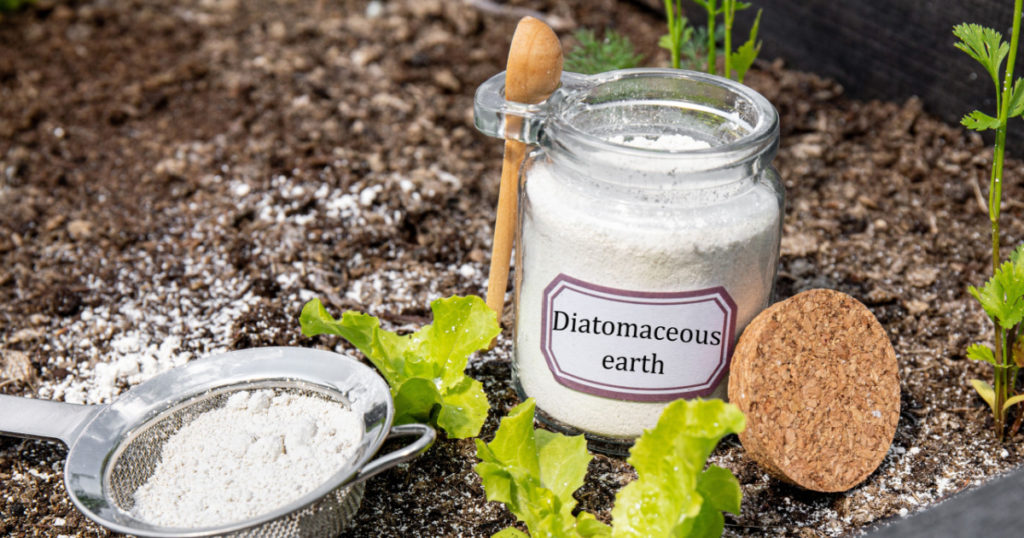
Found in the garden section of your local hardware store, DE is a powder that is safe if ingested by humans and pets but deadly for ants. Sprinkle the powder around all potential ant-entry and hang-out points until the problem is solved.
6. Vinegar

Make a spray using a 1:1 ratio of distilled vinegar and water. If you’d like, you can add a couple of drops of lemon essential oil (or another proven anti-ant essential oil). Spray it around all ant entry points and areas, being sure to shake it well before each use.
Read: 10 Tips to Keep Your Bathroom Smelling Fresh
7. Boiling water
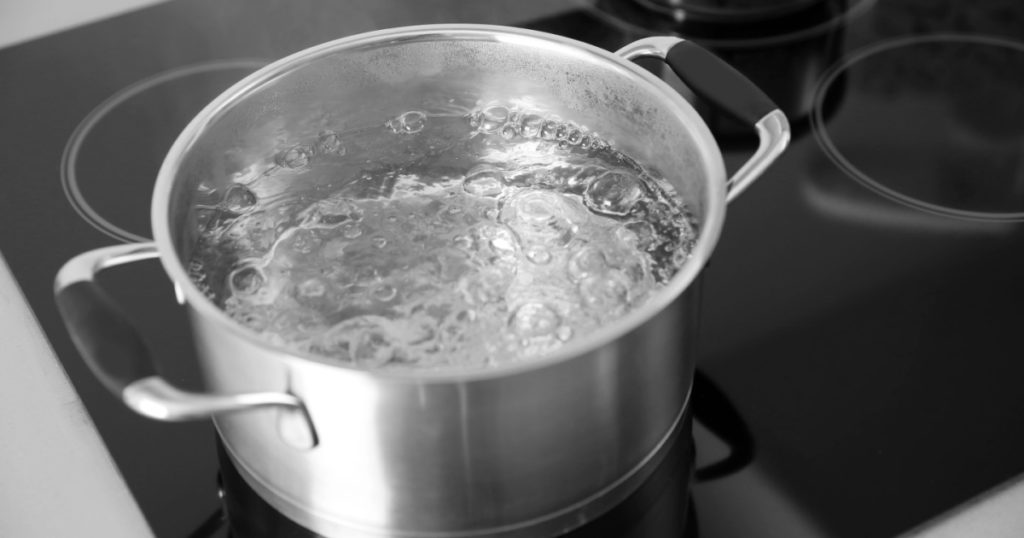
Pouring boiling hot water into an ant hole will effectively kill many of the insects inside. Remember that ant colonies are vast, so be sure to pour the water in any surrounding ant hills in your yard, this will help to ensure you get most if not all of the colony. To be even more certain, boil the water with cayenne pepper or add cayenne pepper seasoning.
8. Old Coffee Grounds

After you’ve made a delicious pot of joe, take the leftover coffee grounds and sprinkle them around the ants’ entry points into your home, as well as any areas that tend to attract the bugs. Change out the ground once they are dry.
The Bottom Line
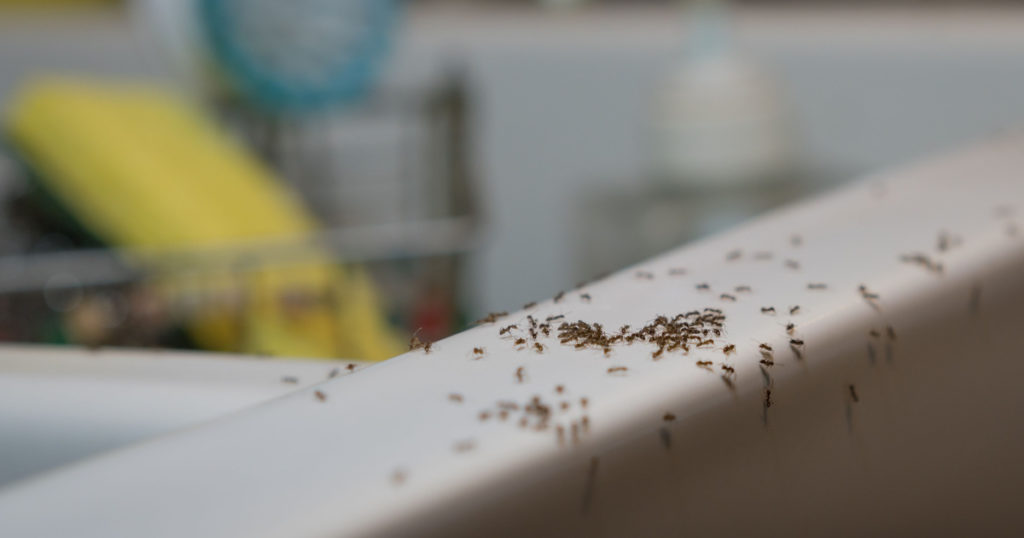
No one wants ants in their house, however many commercial ant removal products are full of chemicals that are dangerous to both the environment and human health. We hope this guide on how to get rid of ants helps!
Read More: If the Mosquitos Always go Straight for You, Here’s What You Need to Know

